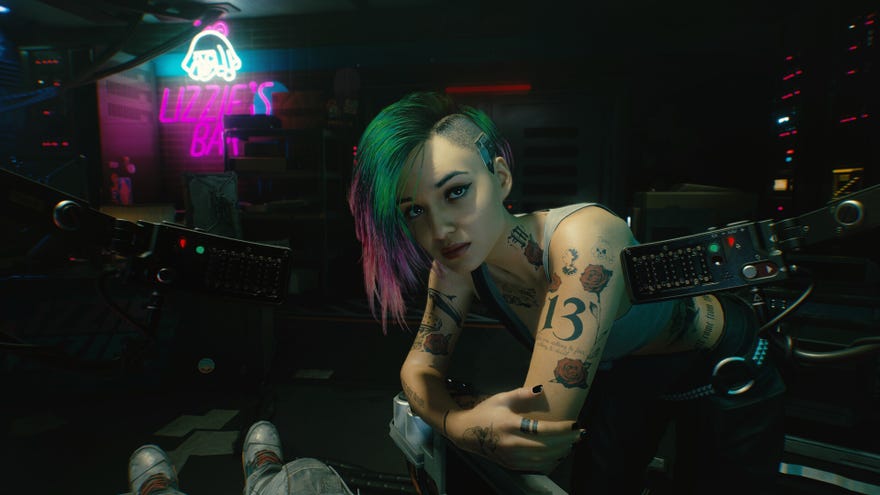CD Projekt staff form union after layoffs - and want everybody in the industry to join
"Become a part of an industry-wide support network"
There's a side mission in Cyberpunk 2077 that involves abducting a notorious union-breaker. One wonders if any of the people who worked on that have joined the union founded by CD Projekt RED employees this month. The union is part of the larger Polish worker's organisation OZZ Inicjatywa Pracownicza, and comes in response to CD Projekt's firing around 100 employees in July due to "overstaffing". Its membership is anonymous and open to people in the industry who aren't employed by the Witcher and Cyberpunk studio, but are thinking about forming a union in their own workplace.
"We started talking about unionizing after the 2023 wave of layoffs when 9% of Reds (that is roughly 100 people) were let go," reads an official FAQ from the group. "This event created a tremendous amount of stress and insecurity, affecting our mental health and leading to the creation of this union in response. Having a union means having more security, transparency, better protection, and a stronger voice in times of crisis."
The statement continues that "unionizing is a way for us to preserve the industry's potential" given that gamedev working conditions "tend to burn creatives early and make them switch industries". The organisers argue that "trade unions are especially important for gamedev, as most people come here out of passion, and passion can be easily exploited, leading to long working hours, lower pay, and eventually, burning out. A union is meant to minimize all of the above, letting your passion grow and thrive, instead of using it as fuel."
The CD Projekt union's immediate plan is to establish proper internal and external communication channels, and build up its numbers so as to create a support system for workers and acquire "a strong negotiation position" during discussions with CD Projekt's management. The organisers have "already reached out to the board and want to establish a dialogue between us and them that is stable and reliable".
"We also want to increase employment stability," the statement goes on. "Unionization guarantees us the ability to negotiate the terms of mass layoffs as well as in individual cases. In the long run, we also want our voice as employees to be heard more often and more clearly in matters of working conditions."
The union is currently in "what is effectively a trial period" - it has been legally established, but doesn't have governing bodies in place. The organisers hope to create the latter structures by way of a larger statutory meeting in mid-December 2023.
"We've also established contact with a group of union activists in other game dev companies and we joined forces to cooperate and establish a better industry and job market for all of us," the statement says.
People joining from outside CD Projekt RED will miss out on unspecified "workplace benefits" available to employees with a Polish contract, but "will become a part of an industry-wide support network, get a platform to exchange experiences and know-how with your peers, [and] get the support of the organization if the need arises".
CD Projekt have yet to officially comment on the news, but the company's senior leadership have offered mixed opinions on unionisation in the distant, pre-Cyberpunk past. Back in 2018, head of studio Adam Badowski told Le Monde (via Google Translate) that "I don't know if unions can contribute" and that "we should find our own solutions" to problems in games industry workplaces.
Co-founder Marcin Iwinski was more dismissive. "Releasing a game - each time - is like sending people to Mars," he told the paper. "But if there are unions, what do we do? We don't take off? Originally, unions had been created to protect badly paid workers, right? These people are not badly paid workers, these are highly qualified professionals."
That was before the release of Cyberpunk 2077 and the ensuing discussion about crunch and mismanagement at studios like CD Projekt. I wonder how Iwinski and Badowski feel about unions today?
CD Projekt's recent firings are part of a sorry pattern, with mass layoffs enacted this year at Epic, Team 17 and Microsoft, alongside some significant studio closures. These cutbacks have unfolded alongside unionisation efforts at ZeniMax and SEGA. It does rather feel like things are coming to a head.

